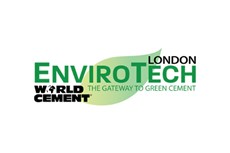PPC predicts an increase in African sales
Published by Rosalie Starling,
Editor - Hydrocarbon Engineering
World Cement,
South African cement company PPC has predicted that major infrastructural and construction projects in South Africa, Botswana and Zimbabwe will boost demand for cement in the region.
Some 22% of PPC’s cement sales come from the rest of Africa and this figure is predicted to almost double to 40% by 2017 as a result of new ventures in Rwanda, Ethiopia and the Democratic Republic of Congo (DRC). The expansion into Africa has been prompted by lower margins and increased competition in the South African market from Sephaku Cement and Dangote Cement. PPC saw low cement volume growth alongside price increases in the quarter ending 31 December 2013.
Bheki Sibiya, Chairman of PPC, told local press that the trading environment in the country is likely to remain difficult but that the company’s expansion plans are on track. Work has begun on the company’s plants in Ethiopia and DRC and commissioning of a new plant in Rwanda is expected at the end of the year.
South African cement statistics
- Industry volumes for January 2013 – September 2013 saw a 6.2% increase compared to the same period in 2012.
- Domestic cement sales saw an 8.8% y/y rose from 2.98 million t in 3Q12 to 3.24 million t in 3Q13. Sales also saw a quarterly increase from 3.2 million t in 2Q13.
- Selling days were up 1.6% y/y from 63 days in 3Q12 to 64 days in 3Q13.
Volumes are based on figures from PPC Cement, Lafarge, AfriSam, NPA, Ash Resources, Sephaku Ash and Ulula Ash.
Edited from various sources by Rosalie Starling
Read the article online at: https://www.worldcement.com/africa-middle-east/28012014/ppc_predicts_an_increase_in_african_sales_659/
You might also like
The World Cement Podcast
A podcast series for professionals in the cement industry featuring short, insightful interviews. Subscribe on your favourite podcast app to start listening today.


